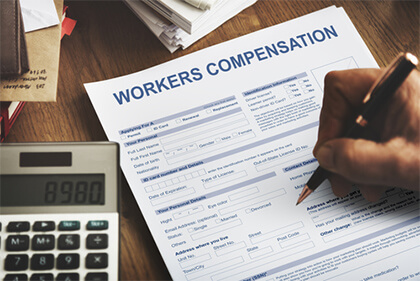Workers Compensation: Section 11A
Under the Workers Compensation Act 1987, there are two main tests that workers must satisfy in order to obtain compensation (whether weekly compensation, medical expenses or lump sum compensation). These two tests are whether an injury occurred under s4, and whether the worker’s employment was a substantial contributing factor to injury under s9A.
However, in the realm of psychological injuries, there is often also a further hurdle a worker will have to overcome in order to obtain compensation. This hurdle is known as the s11A defence – “No compensation for psychological injury caused by reasonable actions of employer”.
Under s11A (1), it is stated that:
“No compensation is payable under this Act in respect of an injury that is a psychological injury if the injury was wholly or predominantly caused by reasonable action taken or proposed to be taken by or on behalf of the employer with respect to transfer, demotion, promotion, performance appraisal, discipline, retrenchment or dismissal of workers or provision of employment benefits to workers.”
The workers compensation insurer will often rely on the s11A defence, in circumstances where the worker makes a psychological claim as a result of being performance managed, disciplined or dismissed from their employment as a result of “reasonable actions” taken by the employer.
This defence ensures that even in circumstances where it is found by the Workers Compensation Commission (WCC) that the worker has sustained a psychological injury, and that injury is as a result of their employment, the insurer will not be liable to pay compensation if it is found that the injury is as a result of reasonable treatment by the employer.
S11A criteria:
Under the s11A defence, there are two specific criteria that the employer will have to satisfy, in order for the defence to be upheld. This is outlined in the matter of Temelkov v Kemlawarra Portuguese Sports and Social Club Ltd (2008). In determining a claim for psychological injury, the WCC to decides whether the psychological injury was wholly or predominantly caused by the actions or proposed actions of the employer, and whether those actions or proposed actions were reasonable.
The onus of proof in establishing that any matters fall under the s11A defence, falls upon the employer.
1. Wholly or predominantly:
The first criteria that the employer has to prove, is that their actions were wholly and predominantly the reason for the workers psychological injury. The word “wholly” is self-explanatory, with the word “predominantly” being under debate. It was found in Jackson v Work Directions Australia Pty Ltd (1998), that for an employer to succeed under s11A, it must establish that its action was the stronger cause of psychological injury, over all other factors.
In relation to the types of actions, these are listed in the Act, such as transfer, demotion, promotion, performance appraisal, discipline, retrenchment or dismissal of workers or provision of employment benefits to workers.
An example of this, is in a circumstance where a worker becomes performance managed, and as a result of that performance management they begin to suffer from a psychological injury (anxiety, depression, etc.). In the event that a situation such as this occurs, it will likely be deemed that the worker’s injury was wholly or predominantly caused by the actions of the employer.
2. Reasonableness:
In the case of determining whether the employer’s action was “reasonable”, the WCC is required to use the objective test. This requires the WCC to determine whether a reasonable person in the employer’s position would have considered the employer’s action/s to be reasonable.
In determining reasonableness, it will be up to the WCC to look at all the relevant factors. In D-G, Dept of Education and Training v Pembroke (2006) it was noted that in determining whether the conduct was reasonable, the WCC must consider all the relevant factors, including both the rights of employee and the employer. If after considering all those factors the employer can establish its conduct was reasonable, the employee will be unable to obtain compensation.
In the event the employer is able to prove to the WCC that both their actions were wholly and predominantly the reason for the worker’s psychological injury, and that those actions were reasonable, the worker will be unable to obtain compensation, However, conversely if the employer is unable to prove on the balance of probabilities that this was the case, the worker will be able to obtain compensation.
How can we help?
We successfully deal with numerous claims for psychological injury as a result of a worker’s employment, whether it be as a result of bullying and harassment or due to the stressful nature of the occupation.
If you or a friend have suffered a psychological injury as a result of your employment, we are willing to assist in obtaining compensation on your behalf. Please note that a claim for workers compensation will not leave you out-of-pocket, with our legal services being funded by the independent body, Workers Compensation Independent Review Office (WIRO).
For more information, and to arrange a free, no-obligation assessment of your claim, please contact Stacks Goudkamp on 1800 251 800, or alternatively, make an online enquiry.



